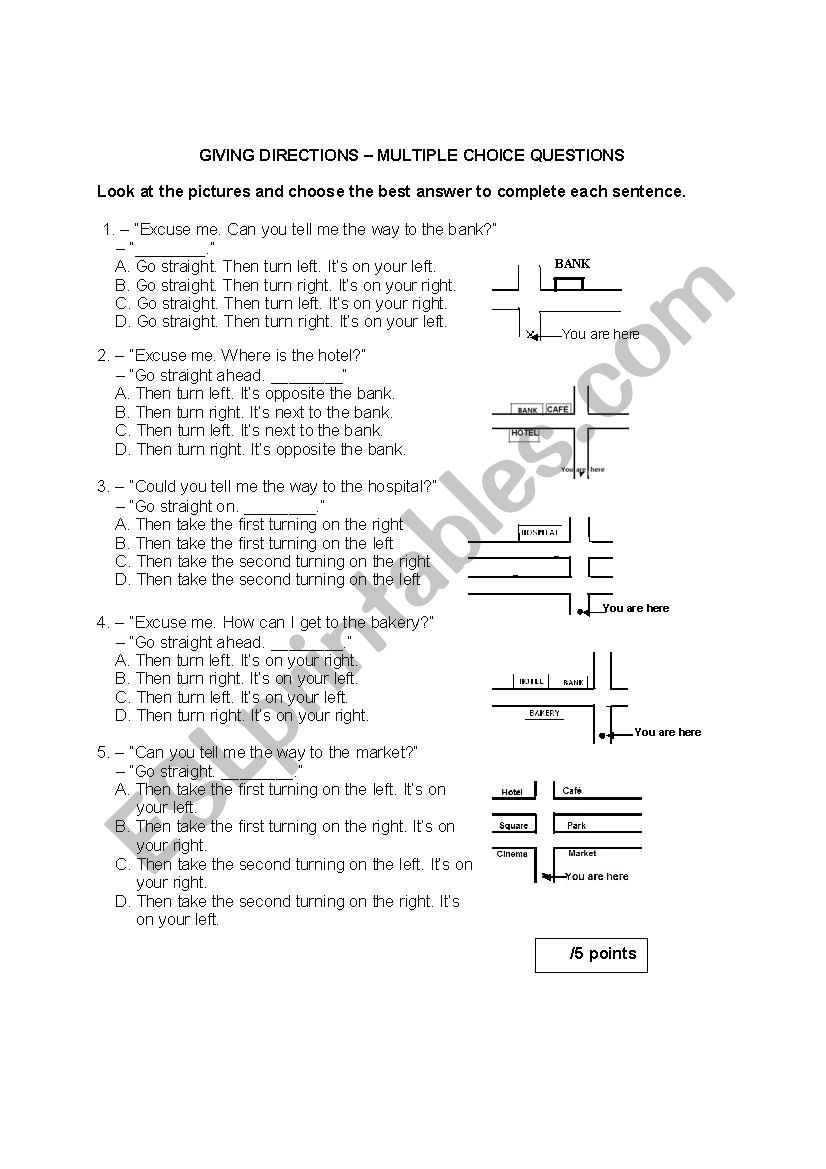When it comes to taking a multiple choice exam, it is important to have a clear understanding of how to approach the questions and choose the correct answers. These exams are commonly used in educational settings and require careful consideration to ensure success.
Before diving into the exam, it is crucial to read and understand the directions provided by the instructor or exam proctor. These directions will often outline important information such as the number of questions, time limits, and any specific rules or guidelines to follow during the exam.
Directions:
1. Read each question carefully: Take the time to carefully read each question and all of the answer choices before selecting your response. Pay attention to any keywords or phrases that may help guide you to the correct answer.
2. Eliminate incorrect answers: If you are unsure of the correct answer, try to eliminate any obviously incorrect choices first. This can help narrow down your options and increase your chances of selecting the right answer.
3. Use the process of elimination: If you are unsure of the correct answer, use the process of elimination to rule out any choices that are clearly incorrect. This can help you make an educated guess and improve your chances of selecting the right answer.
4. Answer every question: It is important to answer every question on the exam, even if you are unsure of the correct response. Leaving questions blank will not earn you any points, so it is better to make an educated guess than to leave a question unanswered.
5. Manage your time wisely: Multiple choice exams are often timed, so it is important to manage your time wisely and pace yourself throughout the exam. Try not to spend too much time on any one question, and make sure to leave enough time to review your answers before submitting your exam.
In conclusion, taking a multiple choice exam requires careful attention to detail and a strategic approach to answering questions. By following these directions and tips, you can improve your chances of success on your next exam. Remember to stay calm, read each question carefully, and trust your instincts when selecting your answers.
